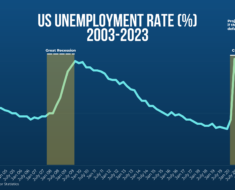In order to sell a substantial amount of vehicles in many countries, if not to sell any vehicles at all, motor vehicle manufacturers are required to craft their cars, trucks, and other automobiles to meet various emissions tests outlined by various countries’ governments.
Rather than sacrificing performance, rising costs, and complicating the manufacturing and decision processes alike, some manufacturers attempt to cheat the tests that are designed, implemented, and overseen by some countries.
One of the most common ways of covering up the true levels of emissions that vehicles actually pump out, some manufacturers equip all of their vehicles with top-secret defeat devices, any of the many known or experimental components that mess with or entirely stop emissions controls when motor vehicles are being operated in real-world conditions.
In other words, defeat devices are turned on during emissions tests and left off when consumers actually drive their vehicles out in the real world.
One of the most recent instances of a major motor vehicle manufacturer installing such defeat devices in the vehicles they produce came in 2015, when the United States Environmental Protection Agency blew Volkswagen Group’s cover in the company’s deliberate scheme to design ways for its TDI-engine-equipped vehicles – TDI stands for turbocharged direct injection – around emissions tests.
Audi, formally registered as Audi AG in its home country of Germany, is a manufacturer of luxury motor vehicles that prides itself as one of the largest auto brands in the world. According to JATO Dynamics, a global automotive market research firm based in London, Audi was ranked as the 13th largest motor vehicle brand in the world based on statistics derived from its financial performance in 2018 as compared to all other manufacturers of motor vehicles around the globe.
Rupert Stadler, in addition to three other people – they haven’t yet been named – who assisted him in his deliberate attempts to interfere with emissions tests by installing defeat devices in Audi automobiles that use diesel fuel, was formally handed down charges by the lead prosecutor of Munich, Germany.
Stadler, as well as each of the other three unnamed individuals, is being charged with engaging in unfair, illicit advertising practices and false certification. Even though Stadler was – at the very least – aware of Audi’s attempts at covering up their vehicles’ true emissions, he failed to report such unethical, illegal activity to relevant government agencies or preventing the sale of the modified vehicles, according to the prosecutor’s office of Munich.
Dil Bole Oberoi





